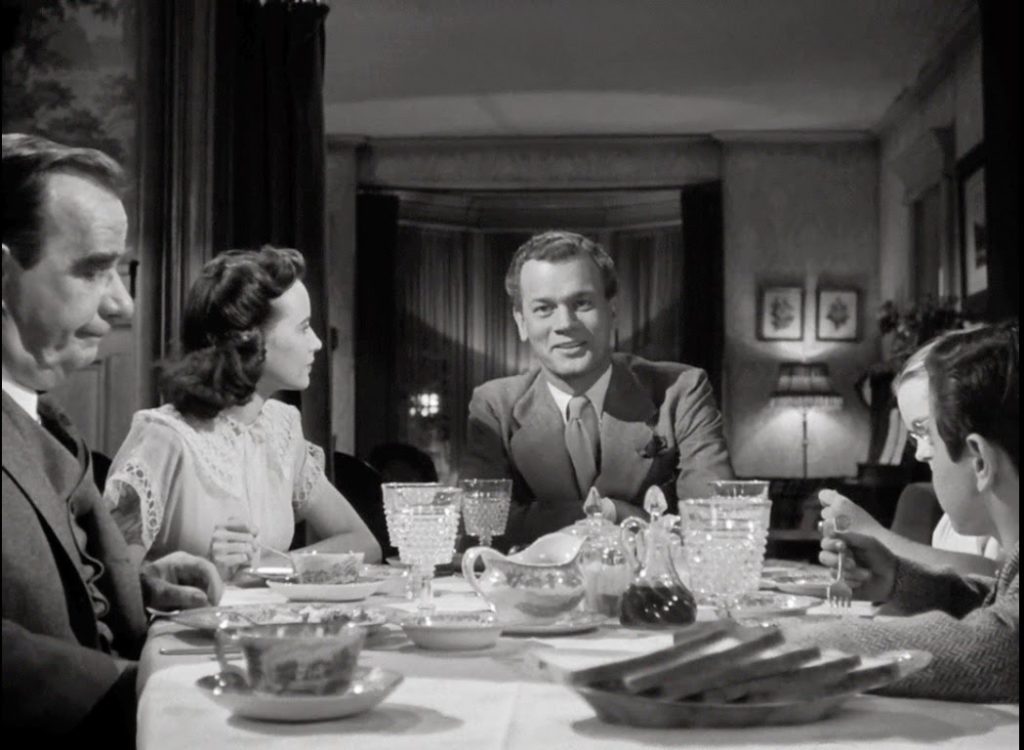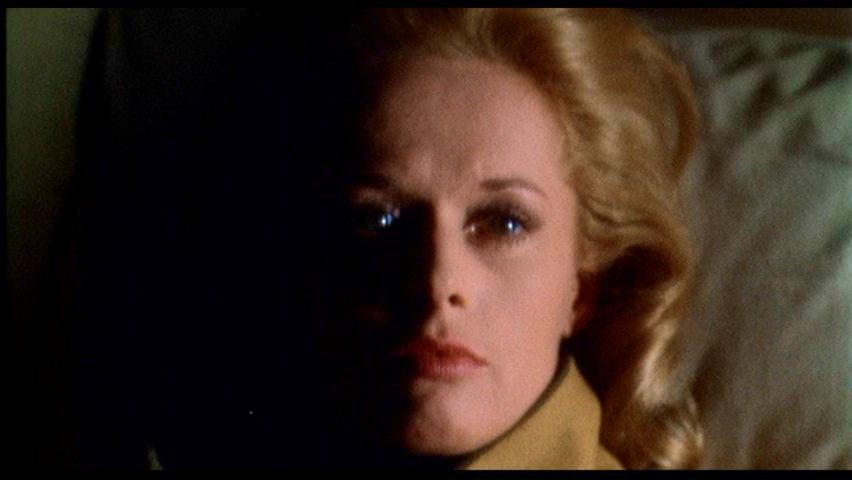Today we mark the 118th birthday of Alfred Hitchcock, the Master of Suspense and one of the greatest directors of all time. He’s responsible for such masterpieces as Psycho, Rear Window, Vertigo, and The Birds. He developed a unique, signature style that includes maintaining a simple story all while breaking suspense clichés. He also uses humor to break the tension. He is a universally recognized figure thanks to his many cameo appearances in his own films. Today we are going to look at some of these characteristics in his lesser known films: Shadow of a Doubt and Marnie.

The film Shadow of a Doubt was made in 1943, and has a simple story on the surface: a bored niece Young Charlie (Teresa Wright) excitedly waits for a visit from an uncle also named Charlie (Joseph Cotton) that she loves very much. Meanwhile, there is a serial killer on the loose known as “The Merry Widow Killer” who is strangling widows after robbing them of all their money. These two stories meet in a delicate waltz between the two leads.

Everything seems very normal on the surface until the cracks in Uncle Charlie’s perfect veneer start to show ever so slightly and doubts begin to grow in the mind of Young Charlie. Uncle Charlie hides a page from the newspaper and grows angry out of turn at the mention of a song. These details are masterfully shown by Hitchcock using careful intercutting between the shots.
The characters in Shadow of a Doubt also defy any set cliche. Young Charlie herself is not a perfect hero as she has darkness in her along with innocence. She loves her uncle but the doubts she begins to have about him leave her conflicted. She wants to do the right thing, but she also wants to protect her family, who idolizes him. In contrast, Uncle Charlie is not a perfect villain either. He may be a killer, but he also seems to genuinely love his family. They are, in many ways, two halves of the same person. This duality reflected in their names is certainly no mistake.

Hitchcock does a great job using humor to break the tension throughout the film. Young Charlie’s father and his friend spend a great deal of time joking about murder. Charlie finds it offensive, but her mother scoffs, “It’s your father’s way of relaxing!” These jokes work to relax the audience as well. Shadow of a Doubt certainly stands out as one of Hitchcock’s finest works.

Marnie is the seemingly simple story of a thief, Marnie Edgar (Tippi Hedren), who poses as a bank clerk at various financial organizations, steals money from their safes, and then moves on to the next job. It becomes clear, however, that she has a difficult past and that she desperately wants her mother’s approval and love.

She is eventually caught by a bemused businessman, Mark Rutland (Sean Connery), who decides not to turn her in. He instead covers her latest crime and blackmails her into marrying him, thinking he can somehow help her. Much of the film is a virtual battle of minds and wills between Marnie and Mark.
Marnie breaks the suspense movie cliché of the dumb blonde. Marnie is a smart, observant thief, though she is driven by a compulsion to steal that she doesn’t necessarily understand. She is a far more complex character than your average criminal. Underneath her steely exterior, it is clear that Marnie suffers from a great deal of pain.

This film is one of Hitchcock’s journeys into what could be classified as a romance, but there are enough psychological aspects to keep it from ever being ordinary. Marnie lacks some of the overt wit that Shadow of a Doubt featured, but it still contains some wry comments that lighten what is otherwise a more somber and dramatic film.

Just because a story is simple doesn’t mean the movie isn’t a complex one. And just because a character looks a certain way doesn’t set their character arc in stone. One of the beauties of Alfred Hitchcock’s films is his ability to turn all cliché’s on their head and do it with a wink and a smile. It’s part of what makes his films so incredible after all these years.
 PopHorror Let's Get Scared
PopHorror Let's Get Scared




